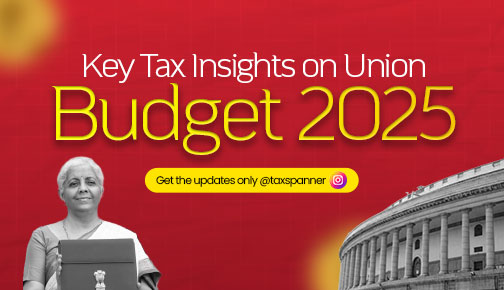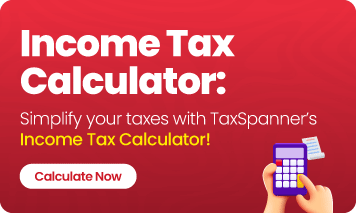Economically Weaker Section or EWS
The Economically Weaker Section (EWS)
The Economically Weaker Section (EWS) is a category formally introduced by the Indian government to provide reservation benefits to individuals from the general category who are economically disadvantaged or fall under a specific income margin. This category is designed to address the socio-economic disparities within the general population.
This category comprises individuals who do not belong to the caste categories of ST/SC/OBC since they already enjoy the benefits of reservation.
The government of India introduced a 10% reservation for this category of people who are not included in the ST/SC/OBC category but belong to the unreserved category and meet the criteria of the economically weaker section.
The EWS Quota Bill: This is an important Legislative Act
The Indian Parliament recently achieved a significant legislative milestone with the passage of the Constitution 124th Amendment Bill, 2019. This landmark legislation aimed to introduce a 10% reservation for Economically Weaker Sections (EWS) in government jobs and educational institutions.
Key Highlights of the bill:
- Overwhelming Support: The bill received widespread support,from majority in both houses of Parliament. In the Lok Sabha, a crucial lower house, 323 members voted in favor, while only three opposed it. Similarly, in the Rajya Sabha known as the upper house, 165 members supported the bill, with seven dissenting votes.
- Procedural Overview: The bill's passage required a special majority, reflecting its constitutional significance. Both houses of Parliament passed the bill on the same day it was introduced, that showcase a remarkable display of legislative efficiency.
- Opposition Concerns: While the bill enjoyed substantial support, the AIADMK, a prominent political party, made a walkout before the voting process. Additionally, a motion to refer the bill to a Select Committee for further deliberation was negated, indicating a fast and decisive legislative process.
Significance Of the bill:
- The EWS Quota Bill represents a significant step towards addressing economic disparities in Indian society. By introducing reservations for economically weaker sections, regardless of caste, the government aims to improve social mobility and provide equal opportunities for marginalized groups.
Eligibility Criteria for EWS:
To qualify for EWS reservation, individuals must meet the following criteria:
- Annual Family Income: Their family's annual income must be less than Rs. 8 lakh p.a.
- Asset Limit: They should not own specific assets, such as agricultural land, residential houses, or commercial property, beyond certain limits.
Benefits of EWS Reservation:
Individuals who meet the EWS criteria can avail themselves of reservation benefits in various government schemes, which include:
- Education: Reservation in higher education institutions, such as getting admission in colleges and universities.
- Government Jobs: Getting reservation/priority in government jobs.
By introducing the EWS category, the government aims to provide opportunities to economically disadvantaged individuals from the general category, encouraging social and economic mobility.
Eligibility Criteria for the Economically Weaker Section (EWS):
In 2019, the Union Council of India approved and launched a 10% reservation in government jobs and educational institutes for the economically weaker section, or EWS who belong to the general category. This reservation was set to be over and above the 50% existing reservation that is mandatory for the ST/SC/OBC categories, ensuring that these existing reservations are not affected by the reservation under the economically weaker section, or EWS, which means these 50% don't include EWS reservation.
To be eligible for the 10% reservation under the Economically Weaker Section (EWS) category in India, an individual must meet the following criteria:
Category Eligibility:
- General Category:
The individual must belong to the general category and strictly not be from any other category, such as Scheduled Castes (SC), Scheduled Tribes (ST), Other Backward Classes (OBC), or Most Backward Classes (MBC) in the case of Tamil Nadu.
- Income Criteria:
Annual Family Income: The annual family income of the individual must be less than Rs. 8 lakh. This income limit is the most important factor in determining EWS eligibility.
- Asset Ownership:
Agricultural Land: The individual or their family should not own more than 5 acres of agricultural land.
Residential Property: The individual or their family should not own a residential house or flat exceeding 1000 square feet in area.
By fulfilling these criteria, individuals from the general category can avail themselves of the 10% EWS reservation in government jobs and educational institutions, thereby widening their opportunities for education and employment.
How to get an Economically Weaker Section (EWS) certificate?
Steps to obtain an Economically Weaker Section (EWS) certificate:
1) Offline Application:
- Visit the respective authority: Visit the office of the Tehsildar, District Magistrate, Deputy Commissioner, Collector, or Common Service Centers (CSCs).
- Collect Application Form: Obtain the EWS application form from the office.
- Submit Application and Documents: Fill out the form accurately and submit it along with the required documents.
2) Online Application:
Several states have introduced online portals for EWS certificate applications. The process includes:
- Visit the official website of the relevant revenue department or district portal.
- Select the EWS Certificate option by searching for the option to apply for an "Economically Weaker Section Certificate" or "Income Certificate for EWS."
- Then complete the online application form with correct information.
- And upload the required documents in the format that is specified.
- Submit the completed application form.
Required Documents for EWS Certificate:
To successfully apply for an EWS certificate, you will typically need the following documents:
- Aadhaar Card: A valid Aadhaar card for identification.
- PAN Card: Details of Permanent Account Number (PAN) card.
- Income Certificate: A recent income certificate that is issued by the sanctioning authority.
- Bank Statement: A recent bank statement that reflects your financial transactions.
- Land Proof: Documents proving land ownership, if applicable.
- Domicile Certificate or Residential Proof: Proof of your residence in the state or district.
- Self-Declaration or Affidavit: A self-declaration or affidavit stating your family's income and asset details.
Once you submit your application and the required documents, the concerned authorities will verify the information and issue the EWS certificate if you fall into the eligible criteria.
Explore TaxSpanner's wide range of calculators for your tax planning and calculations!
View Tools & Calculators





